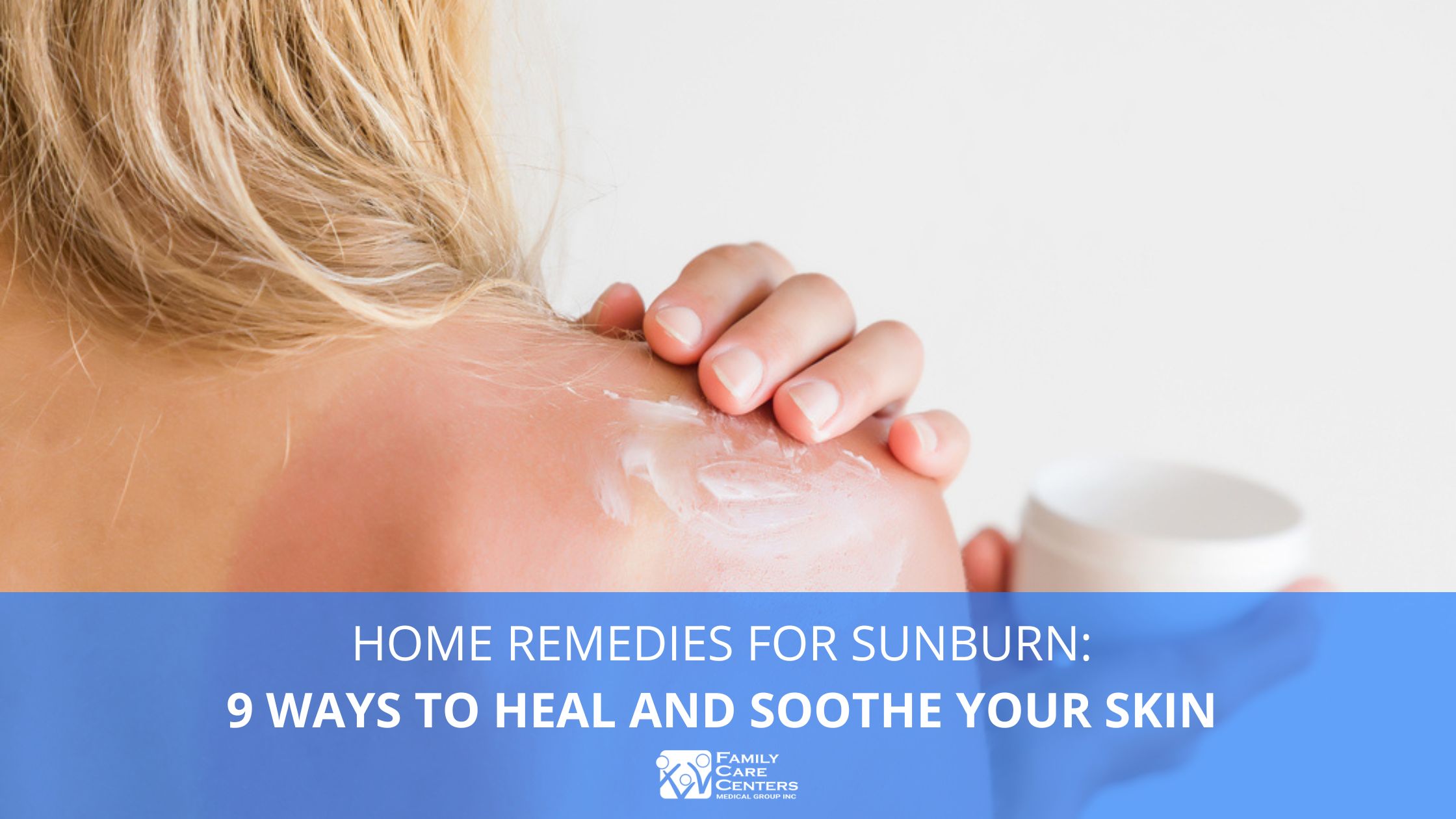Your skin is sensitive to ultraviolet (UV) light; even a few minutes of intense exposure to these rays can cause sunburn. Exposure to both natural (sun) and artificial UV rays (tanning beds) can cause sunburn. The resulting damage to your skin cells triggers your immune system to supply more blood to the affected areas, causing inflammation (sunburn).
You can get sunburn even on cloudy days, since UV rays penetrate cloud cover. Water, sand, and snow are good reflectors of UV rays, potentially doubling your exposure from below. With prolonged exposure, what starts as a skin inflammation can eventually lead to skin cancers, such as melanoma, basal cell carcinoma, and squamous cell carcinoma.
Risk Factors for Sunburn
The following factors can increase your risk of sunburn:
- Having pale skin or naturally red hair
- Working outdoors
- A history of sunburn
- Photosensitizing medications
- Spraying your skin with water or swimming
- Vacationing or living in warmer places or at high altitude
- Lack of skin protection
- Drinking alcohol while in the sun
Symptoms of Sunburn
The following symptoms develop after a few hours (usually 3-4) of sun exposure:
- Pink or red skin
- Pain and tenderness
- Small blisters that may break when touched
- Swelling
How to Treat Sunburn at Home
Sunburn is treatable, and in most cases you can get rid of it at home. Here are nine effective home remedies for sunburn that can help ease the discomfort:
1. Rehydrate
A sunburn draws body fluids to the surface of your skin, causing dehydration. Staying hydrated can diminish the symptoms and promote quicker healing. So, drink plenty of fluids, including water and electrolyte drinks, to replenish the lost fluids and essential salts.
2. Moisturize
Sunburn causes inflammation and dryness of the skin, causing it to peel. Counteract the drying tendency by applying a gentle moisturizer that doesn’t have petroleum, oil, or scented chemicals, as these may worsen the irritation.
3. Use Oatmeal
A cool oatmeal bath will help your skin retain its natural moisture while soothing irritation from sunburn. Fill your bathtub with cold water and add a cup of oats to prepare an oatmeal bath. Avoid scrubbing your skin before and after the bath; gently dab yourself dry with a towel.
4. Avoid More Sun
While recovering, it’s advisable to avoid direct exposure to the sun between 10 am to 4 pm, as the UV rays are the strongest during these hours. Plan your outdoor activities for the evening, and if you must go out, apply sunscreen, carry an umbrella, wear protective clothing, and stick to the shade.
5. Cover Up
Wear lightweight, loose, cotton or bamboo clothes that allow your skin to breathe and enable quick evaporation of excess sweat, preventing further irritation to your skin. Add a wide-brimmed hat to your closet and use it to protect your face while out in the sun.
6. Apply Aloe
Aloe vera contains a substance known as aloin that minimizes skin inflammation. You can apply aloe vera gel to the affected area to reduce swelling and moisturize your skin, thus protecting it from peeling off.
7. Don’t Peel!
UV rays destroy the top layers of skin, causing them to shed prematurely. Such shedding can delay healing while increasing inflammation and the risk of infection. Never peel off the skin from the inflamed area. Instead, apply a cold compress (wrapped in a towel) to soothe the irritation.
8. Leave Blisters Alone
Fluid-filled blisters are common in second-degree sunburn; they protect you from infection and help your skin heal. So don’t pop or break the blisters. Instead, leave them intact and let them heal on their own.
9. Consider Anti-Inflammatories
You can take anti-inflammatories, such as aspirin, ibuprofen, or naproxen, to reduce the swelling and discomfort caused by sunburn. You can also use over-the-counter 1 percent hydrocortisone cream to reduce pain, irritation, and itchiness.
When Should You Seek Medical Advice for Sunburn?
First-degree sunburn that causes mild redness can be treated at home without medical intervention. However, if you experience any of the following symptoms, you should seek medical advice:
- Your sunburn swells or forms large blisters
- You feel sick, tired, or dizzy
- You have a headache or fever
- You feel extremely hot or extremely cold
- You feel nauseous
- You have muscle cramps
- You are dehydrated (and may even go into shock characterized by low blood pressure, fainting, and extreme weakness)
The above-listed symptoms may indicate second-degree or even more severe sunburn and will require immediate medical attention. If you are experiencing these symptoms, visit us today at Woodbridge Walk-In Urgent Care in Irvine, Fountain Valley Urgent Care, or Costa Mesa Urgent Care, CA. With our medical assistance, we can help you recover from your sunburn fast.

















Share Your Valuable Thought